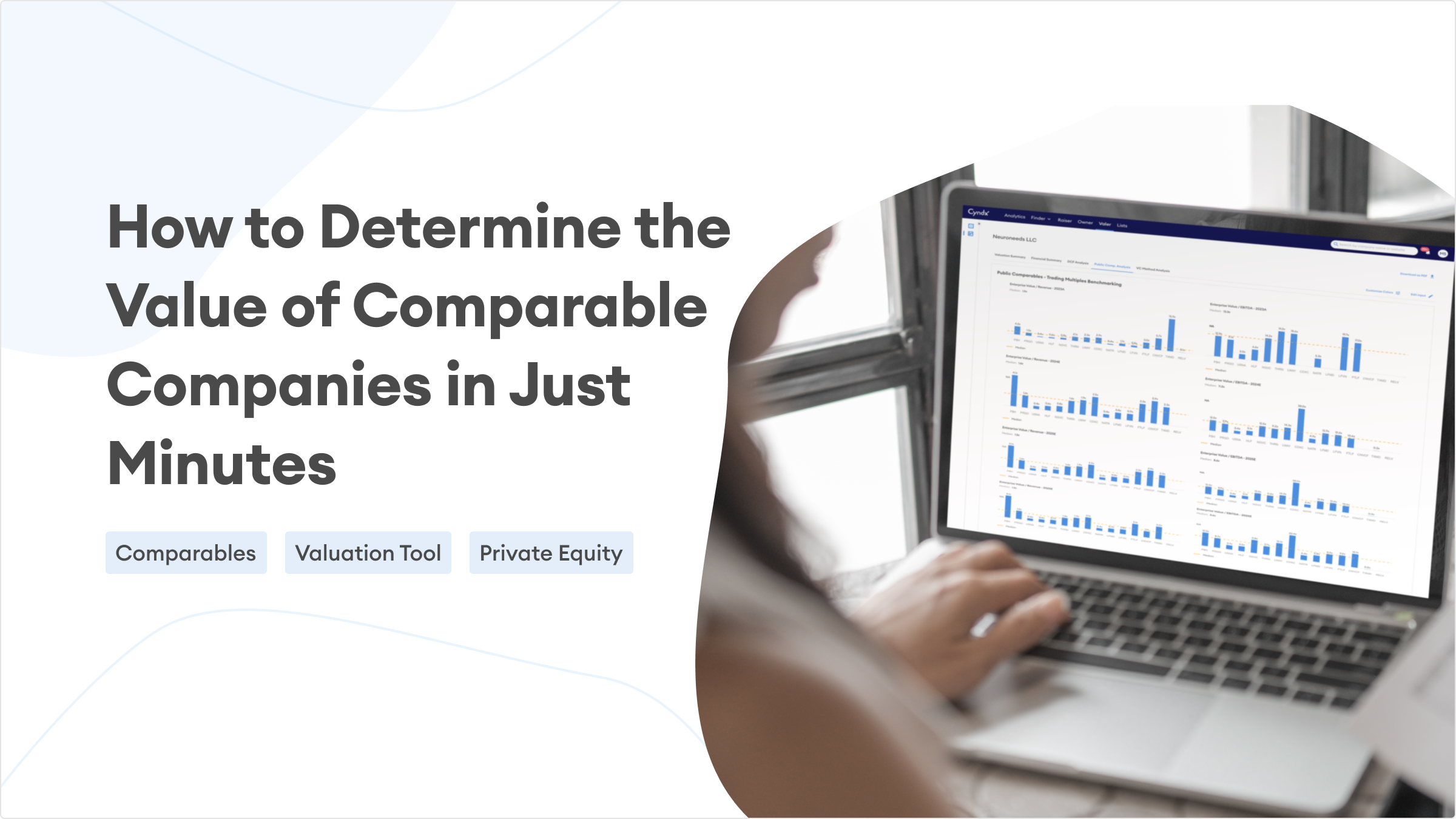Determining the value of a company is like appraising a rare art piece. You’re not just looking at one dimension: the history, current demand, uniqueness, and even the emotional resonance for potential buyers all influence its worth. With companies, though, there are constantly moving pieces — financial metrics, industry trends, competitive positioning, future growth potential — all complicate the puzzle even more. For finance pros who don’t always have the luxury of time when a good deal is on the line, this is a grueling process. That’s where “comps”— or comparable company valuations — come in to provide a shortcut for assessing value based on similar companies. The trick with comps is finding just the right ones and the most recent data, so that your assessment hits the bullseye rather than landing somewhere vaguely on the target.
Traditionally, doing comps by hand is tedious, filled with spreadsheets and old market data. Compiling tons of data, investors sift through metrics such as enterprise value to EBITDA ratios, price-to-earnings ratios, price-to-book ratios, and beyond, to establish a clear, accurate valuation range. But in an industry where seconds matter, manual comparisons are proving inefficient and prone to error.
Fortunately, modern AI has revolutionized the process. Now, data-driven AI platforms are making valuations faster and performing in minutes rather than days.
Importance of Real-Time Data in Valuation
Using comparable companies for valuation has always been one of the more flexible, reliable methods. But it does have drawbacks. Data on comps can quickly become obsolete, and manually updated spreadsheets have inherent limitations — like incomplete records, lagging information, and human error. Today’s investors need fast, precise valuations, which is why timely, data-driven valuation tools are taking precedence.
Consider evaluating a target company in a high-growth sector like clean energy. You’ve identified five solid comps, and you start aggregating their latest metrics. If you’re using manual methods, you’d spend days (or weeks) tracking each metric, verifying each company’s financials, and recalculating every key ratio to ensure nothing’s out of date. But in a time-sensitive bidding war, that’s valuable time lost, not to mention the potential risk of inaccuracies along the way.
How AI is Revolutionizing the Comps Process
AI-powered tools are reshaping how financial professionals tackle the comps method, offering a level of speed and precision that traditional approaches simply can’t match. Rather than spending hours manually sifting through data to identify comparable companies, these tools employ algorithms that comb vast datasets in seconds, delivering curated lists of comps with detailed metrics in moments. Data is automatically integrated, removing any guesswork over whether figures are current and relevant.
Beyond saving time, AI-driven valuation tools elevate the accuracy and dynamism of the comps process, which is particularly vital in fast-moving markets like tech and renewable energy. By continuously processing fresh market data and updating company profiles and valuation metrics, these platforms ensure that financial models remain relevant even as market conditions shift. It’s a significant leap forward from the days when a quarterly report could render an entire model outdated.
The Competitive Edge of AI-Powered Valuation
Using AI for valuation is quickly becoming a must-have for all financial professionals. AI platforms like Valer provide a critical advantage, offering benefits across five major areas:
- Speed: AI trims the timeline down to minutes instead of weeks. For time-sensitive deals, this kind of efficiency is game-changing, enabling investors to act quickly and decisively.
- Accuracy: Technology minimizes the risk of human error and reduces the potential for inaccuracies in data analysis. This is especially useful for identifying undervalued or overvalued opportunities, giving investors confidence in their bids.
- Dynamic Insights: AI tools are constantly ingesting new data and updating their models, meaning you’re always looking at the most relevant information. This adaptability provides investors with up-to-date insights, ensuring your advice to clients reflects current market realities.
- Cost-Efficiency: Although AI-driven valuation platforms come with a cost, they tend to be far more affordable than relying on labor-intensive, time-consuming manual processes or hiring costly consulting firms. The result is a high return on investment, especially for firms that require frequent valuations for clients or their own deals.
- Data-Driven Decision Making: AI does the heavy lifting, allowing investment professionals to focus on what they do best: interpreting the data, crafting strategies, and building relationships with clients.
As financial professionals adapt to today’s fast-paced markets, AI-powered platforms are becoming essential. By streamlining the valuation process, these tools allow professionals to prioritize strategic thinking, enhance client relationships, and remain agile in a constantly evolving environment. For investors aiming to leverage real-time insights, manage risk, and gain a competitive edge, AI-driven solutions are transforming the field.
The comps method may be a classic, but AI is giving it a serious makeover. Investors can now tackle complex transactions at the speed of thought, with accuracy that’s hard to beat. The new wave of financial pros who prefer brains and bytes over spreadsheets and guesswork may be in on something: the future of valuation is smarter, faster, and a whole lot savvier.
Reach out to improve your valuation process.

